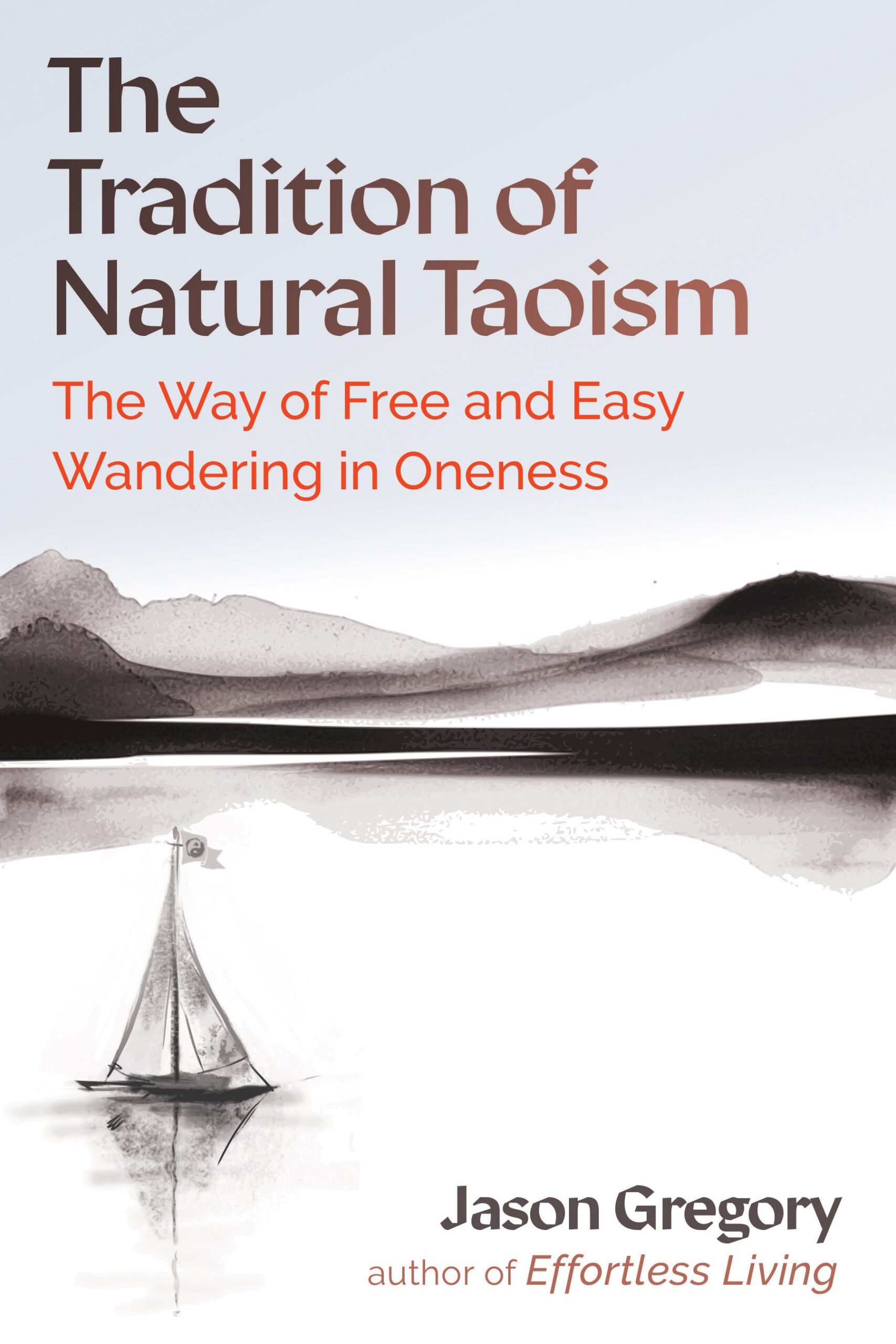TAOISM | Lao Tzu’s Mystical Virtue
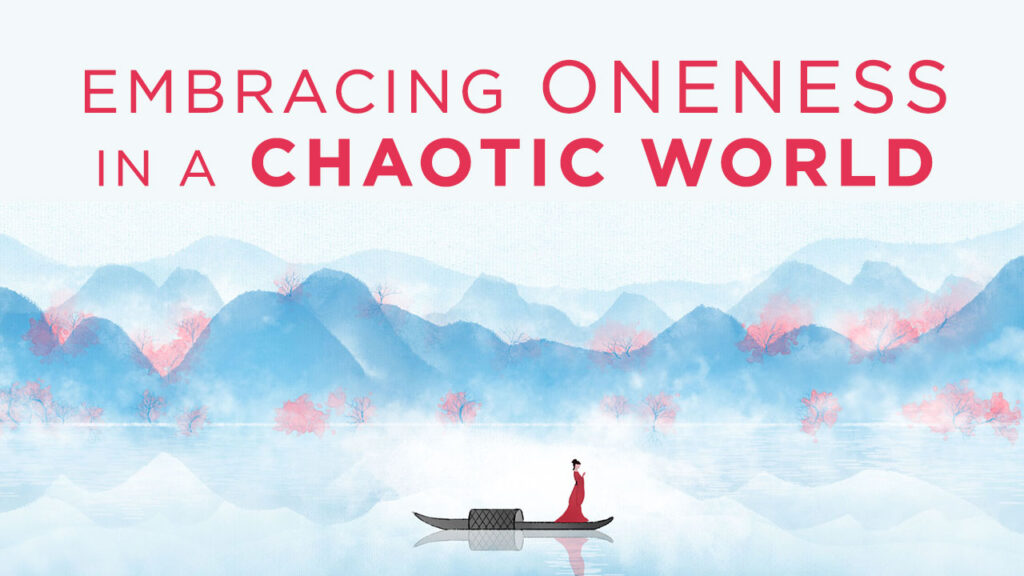
In this podcast, we will explain Lao-tzu’s advice on how to continuously embrace the Tao in a chaotic world, offering us a path to ultimate liberation that he calls mystical virtue. This is the tenth episode of the 81 Meditations of the Tao Te Ching, a series where we explore each chapter of the Tao Te Ching. We will dissect chapter ten of the Tao Te Ching to give you ultimate clarity on the meaning of this chapter. NOTE: This site directs people to Amazon and is an Amazon Associate member. As an Amazon Associate I earn from qualifying purchases, at no additional cost to you. The pages on this website may contain affiliate links, which means I may receive a commission if you click a link and purchase something that I have recommended. This goes a tiny way towards defraying the costs of maintaining this site.
Why Life is Suffering | Eastern vs Western Happiness
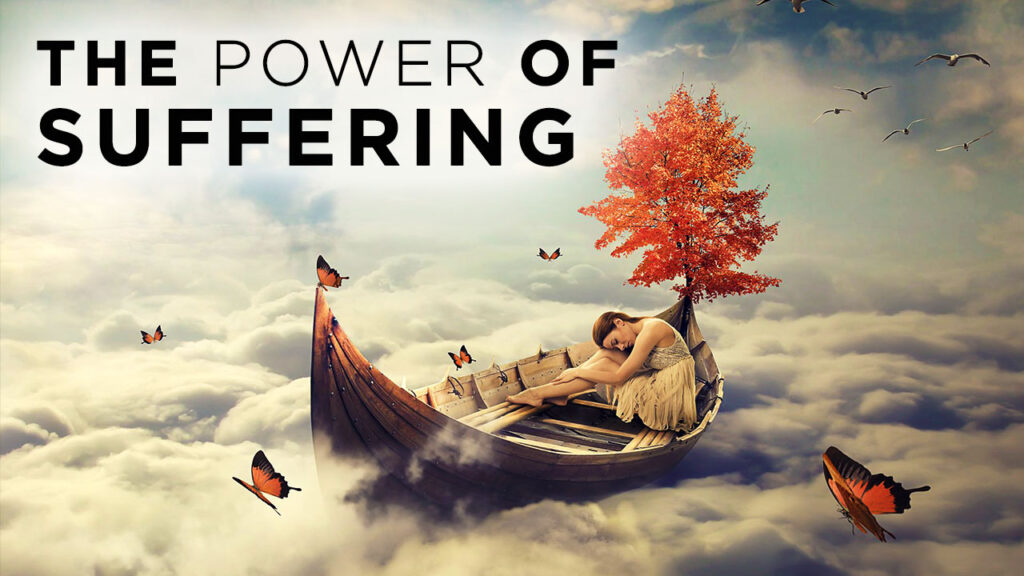
In this podcast, we will explain why life is suffering and how suffering itself contains one of the greatest lessons in life. The Buddha 2,500 years ago explained that life is suffering, but also he gave us a roadmap to eradicate suffering to experience ultimate liberation. This lesson has not been taken onboard nor become ingrained in the psyche of humanity because we are not learning the lessons that suffering is teaching us due to one type of happiness that has us chasing fleeting moments of happiness. When you chase happiness based on temporality, then you’ll suffer. But happiness is not something that is given, suffering is on the other hand. But happiness is a state of consciousness when we accept suffering and do the spiritual work to understand and eradicate it. The real power of suffering is how it leads to empathy, compassion, forgiveness, and ultimately unassociated love. This power can be harnessed if we truthfully understand our own suffering which allows us to empathize with the suffering of others in the world around us. NOTE: This site directs people to Amazon and is an Amazon Associate member. As an Amazon Associate I earn from qualifying purchases, at no additional cost to you. The pages on this website may contain affiliate links, which means I may receive a commission if you click a link and purchase something that I have recommended. This goes a tiny way towards defraying the costs of maintaining this site.
The Universe Explained in 12 Words | A Spiritual Master’s Revelation
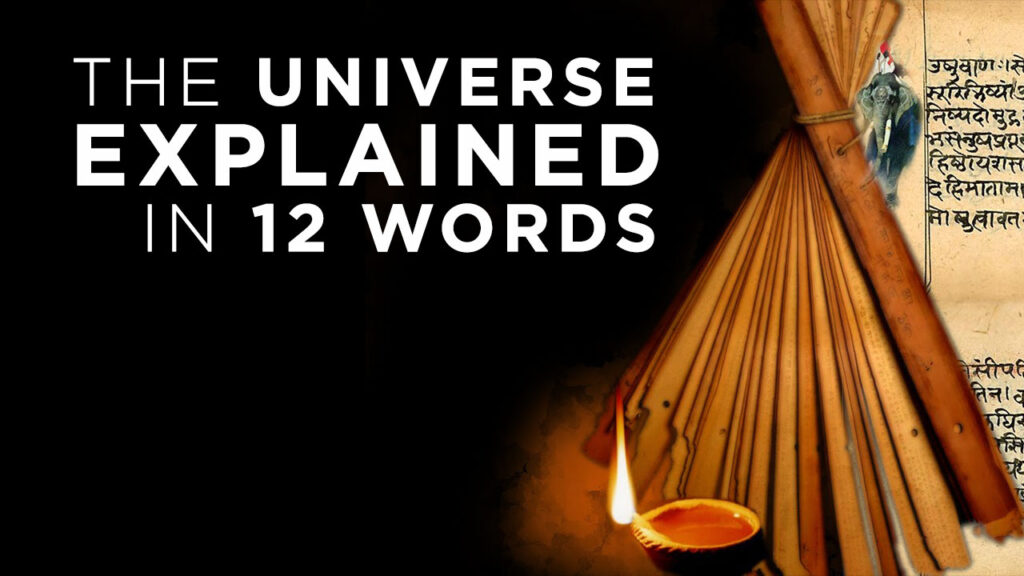
In this podcast, we will explain the universe in twelve words. This one quote is from the great Advaita Vedanta master Shankara, and it explains the universe and the game of duality we are caught in. Many spiritual masters, such as Ramana Maharshi, reverted back to this quote to answer the age-old conundrum of how the nondual reality of Brahman exists in a universe that is seemingly dualistic from our human perception. If there was one quote you ever needed to hear to understand the nature of the universe and your existence itself, then this is the quote you must hear. NOTE: This site directs people to Amazon and is an Amazon Associate member. As an Amazon Associate I earn from qualifying purchases, at no additional cost to you. The pages on this website may contain affiliate links, which means I may receive a commission if you click a link and purchase something that I have recommended. This goes a tiny way towards defraying the costs of maintaining this site.
The Cultivation of Effortlessness
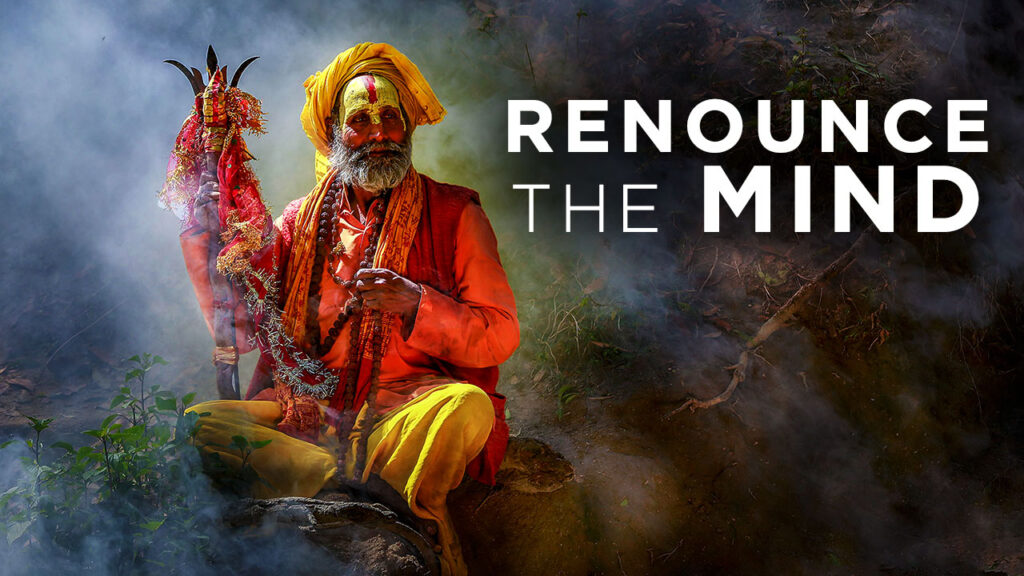
In this podcast, we will explain why spiritual practice and renunciation (nonreaction) are essential for cultivating effortlessness. Abiding in an effortless mind is explained thoroughly in the 196 observations on the nature of consciousness known classically as the Yoga Sutras of Patanjali. We will explain sutras 12-19 which is the second episode of the 196 Meditations of the Yoga Sutras, a new series where we explore each sutra. We will dissect the sutras 12-19 to give you ultimate clarity on the meaning of these sutras. This series is extremely important for those interested in the nature of consciousness. NOTE: This site directs people to Amazon and is an Amazon Associate member. As an Amazon Associate I earn from qualifying purchases, at no additional cost to you. The pages on this website may contain affiliate links, which means I may receive a commission if you click a link and purchase something that I have recommended. This goes a tiny way towards defraying the costs of maintaining this site.
TAOISM | Why Losing Interest in the World is Freedom
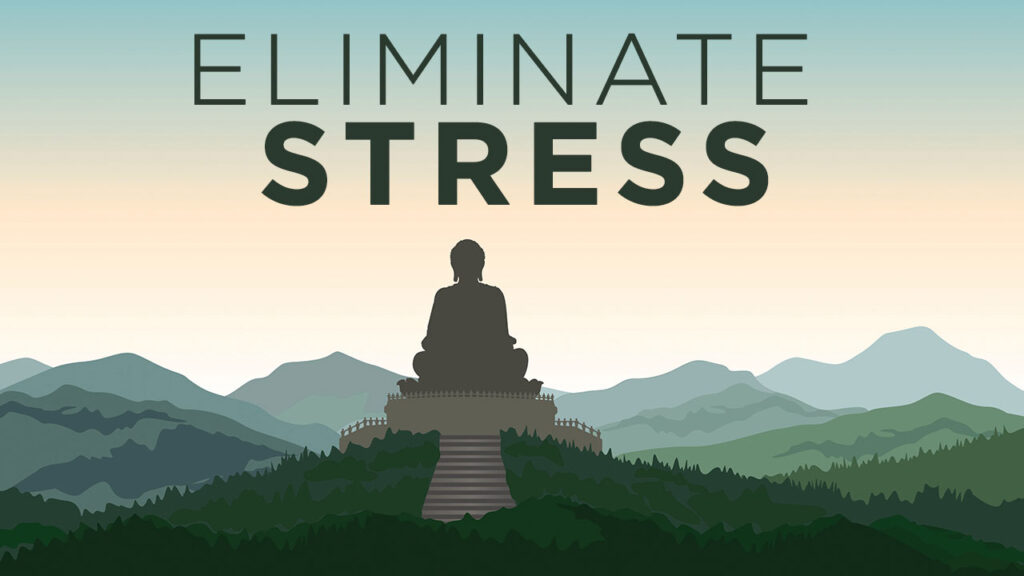
In this podcast, we will explain why losing interest in the mundaneness of the world is a sign of spiritual growth and maturity. Going back to ancient times it was imperative for a spiritual aspirant to withdraw from worldly affairs as we see within the teachings of Taoism, Buddhism and Hinduism. The importance of this distance from worldliness for the spiritual aspirant hasn’t changed, but the power of distractions in the modern world has intensified. This is why now more than ever is a great opportunity to develop spiritually and eliminate distractions to overcome the deepening madness of the world. NOTE: This site directs people to Amazon and is an Amazon Associate member. As an Amazon Associate I earn from qualifying purchases, at no additional cost to you. The pages on this website may contain affiliate links, which means I may receive a commission if you click a link and purchase something that I have recommended. This goes a tiny way towards defraying the costs of maintaining this site.
Taoism’s Aimlessness vs Western Goals and Success
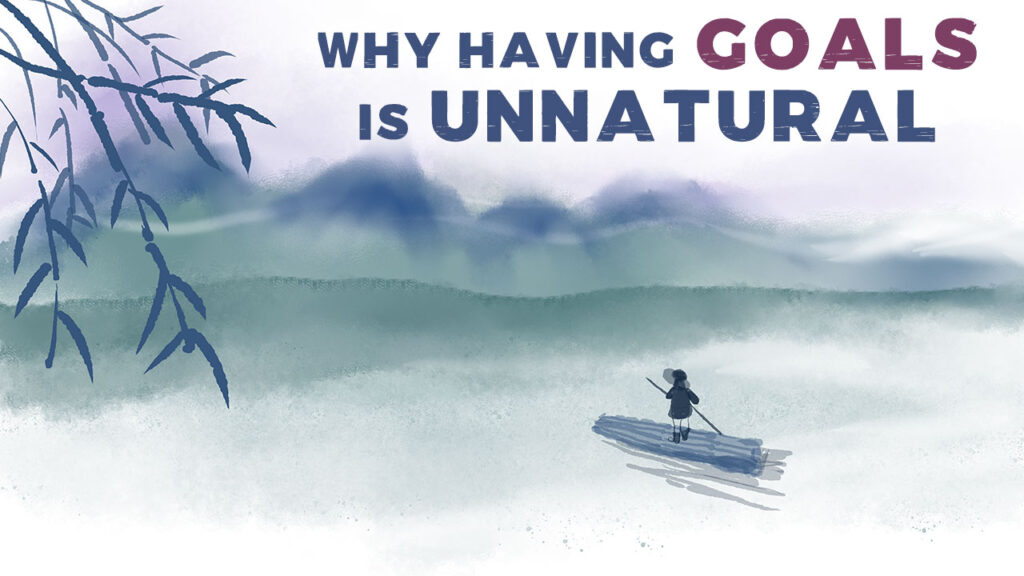
The general mindset of the West is to strive for socially manufactured goals and to try and achieve them according what society determines is successful. The Western social model of goals and success is incorrectly assumed to be a universal way of thinking. As a result, this type of mindset is then superimposed onto foreign ideas, such as spiritual enlightenment in the East. But to attain enlightenment one has to overcome goal orientation and essentially stop striving and give up the search. This Eastern perspective is best explained by the essential teaching of wu-wei in Taoism. In the Tao Te Ching and the Zhuangzi there is no consideration of goals, but rather a focus on aimlessness as a method for creating healthy and sane individuals. Having goals, according to Taoism, is a blind alley that can lead to all sorts of psychological problems and social unrest. In this episode of Ask Jason, I will answer a question about whether or not a goal oriented focus can fit into the art of wu-wei (effortless living/non-doing/non-interference) and whether or not we should have a goal or goals in life and on the spiritual path. NOTE: This site directs people to Amazon and is an Amazon Associate member. As an Amazon Associate I earn from qualifying purchases, at no additional cost to you. The pages on this website may contain affiliate links, which means I may receive a commission if you click a link and purchase something that I have recommended. This goes a tiny way towards defraying the costs of maintaining this site.
Why LESS is MORE | Taoism’s Wisdom for True Freedom
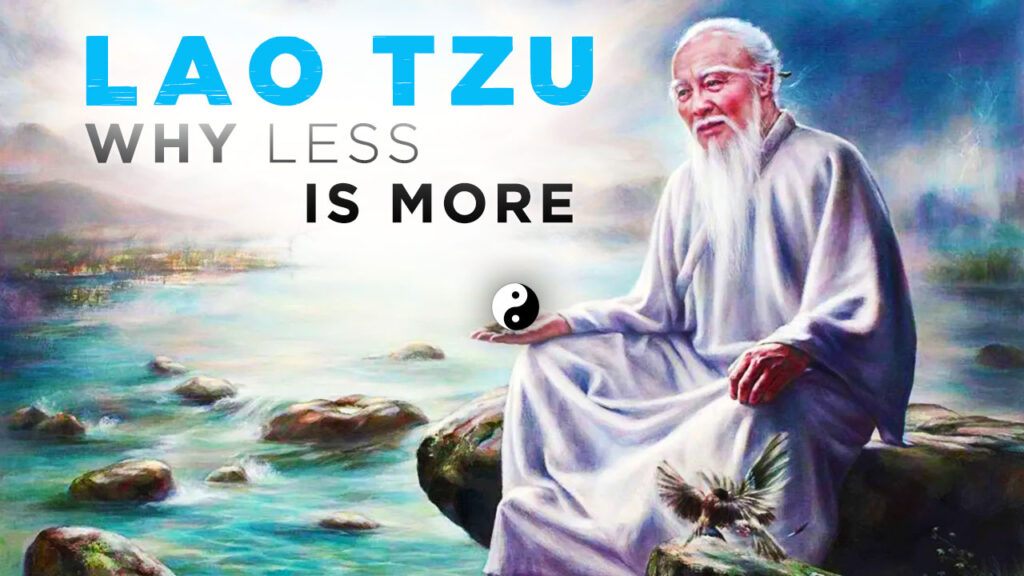
In this podcast, we will explain why too much of anything is a bad idea and how to live in balance according to Taoist wisdom. Lao-tzu uses three primary images to explain why less is more: the overflowing cup, the blade that is too sharp, and the room full of treasures. But this is not about the material world, but rather the three images are about the mind, essentially how our “mind cup” can overflow from thinking itself. Find out why less is more in the ninth episode of the 81 Meditations of the Tao Te Ching, a series where we explore each chapter of the Tao Te Ching. We will dissect chapter nine of the Tao Te Ching to give you ultimate clarity on the meaning of this chapter. NOTE: This site directs people to Amazon and is an Amazon Associate member. As an Amazon Associate I earn from qualifying purchases, at no additional cost to you. The pages on this website may contain affiliate links, which means I may receive a commission if you click a link and purchase something that I have recommended. This goes a tiny way towards defraying the costs of maintaining this site.
5 Reasons You Don’t Exist | The Mind Science of Buddhism
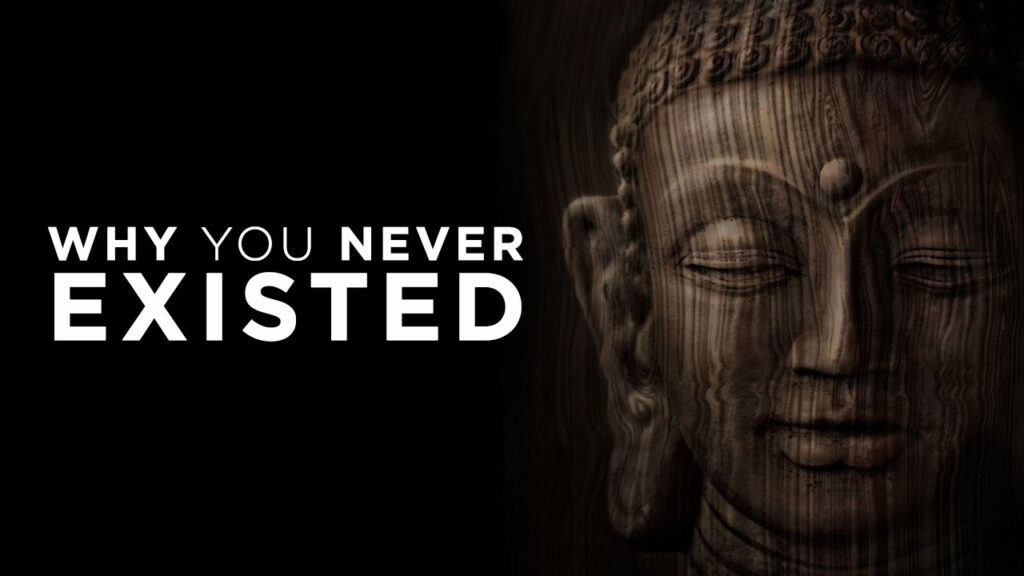
In this podcast, we will explain if you really exist or not. To examine the self, we will explain the mind science of Buddhism from the perspective of the the five aggregates, especially the Madhyamaka and Yogacara schools of Mahayana Buddhism. People often assume Buddhist beliefs are built on the idea that the self (ego/persona) is a persistent illusion, but this is not entirely true because it is much more complicated than that unfounded belief. The five aggregates are actually an advanced mind science centered on how the self is developed and, as a result, why the illusion of a self is based on a cognitive error we all make before waking up (nirvana). NOTE: This site directs people to Amazon and is an Amazon Associate member. As an Amazon Associate I earn from qualifying purchases, at no additional cost to you. The pages on this website may contain affiliate links, which means I may receive a commission if you click a link and purchase something that I have recommended. This goes a tiny way towards defraying the costs of maintaining this site.
Who is PATANJALI and What is YOGA? | The Mind Science Behind Yoga
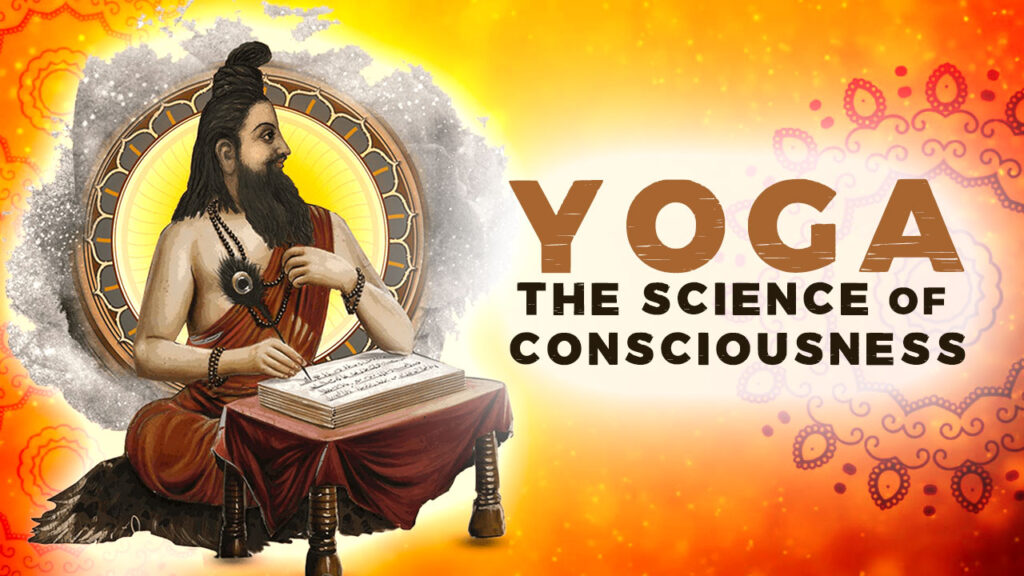
In this podcast, we will explain the mind science behind yoga that informs a large portion of the philosophies and spiritual practices of the East. The mind science of the East is explained thoroughly in the 196 observations on the nature of consciousness known classically as the Yoga Sutras of Patanjali. We will explain the first eleven sutras which is the first episode of the 196 Meditations of the Yoga Sutras, a new series where we explore each sutra. We will dissect the first eleven to give you ultimate clarity on the meaning of these sutras. This series is extremely important for those interested in the nature of consciousness. NOTE: This site directs people to Amazon and is an Amazon Associate member. As an Amazon Associate I earn from qualifying purchases, at no additional cost to you. The pages on this website may contain affiliate links, which means I may receive a commission if you click a link and purchase something that I have recommended. This goes a tiny way towards defraying the costs of maintaining this site.
The Tao of Humility – How to be Flexible and Avoid Conflict
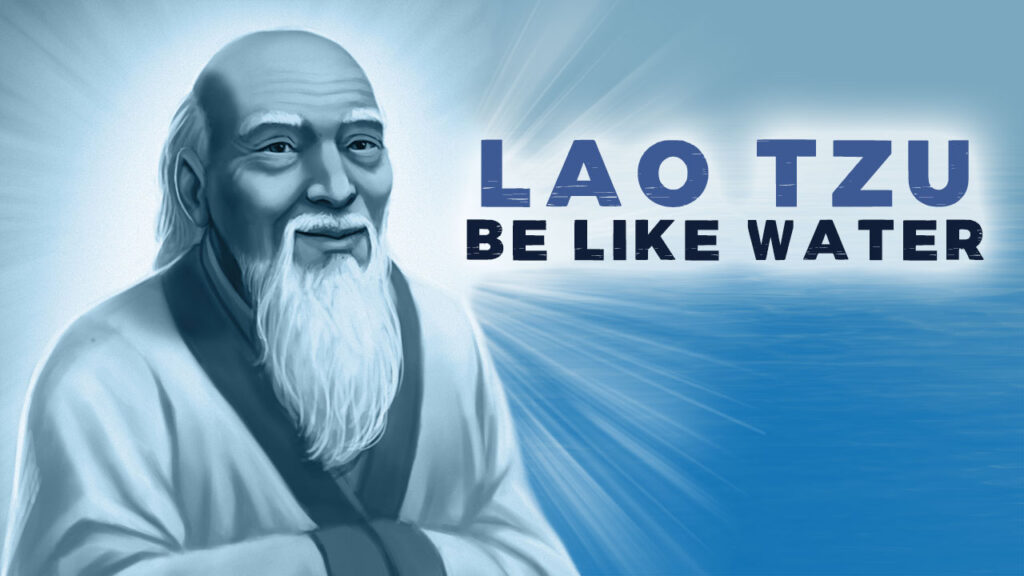
In this podcast, we will explain how those who live in the Tao act in their lives and dealings as water acts in nature. Being flexible and humble, water does not compete nor fight obstacle because it flows naturally to the lowest places. Water is the ideal image of what Lao-tzu means when he explains the humility of non-interference, non-action, and non-being (wu-wei). Find out why we should emulate water in the eighth episode of the 81 Meditations of the Tao Te Ching, a series where we explore each chapter of the Tao Te Ching. We will dissect chapter eight of the Tao Te Ching to give you ultimate clarity on the meaning of this chapter. NOTE: This site directs people to Amazon and is an Amazon Associate member. As an Amazon Associate I earn from qualifying purchases, at no additional cost to you. The pages on this website may contain affiliate links, which means I may receive a commission if you click a link and purchase something that I have recommended. This goes a tiny way towards defraying the costs of maintaining this site.

